On March 14, 2006, free agent quarterback Drew Brees signed with the New Orleans Saints.
Fifteen years later, after having become the best and most accomplished player in New Orleans Saints history, quarterback Drew Brees officially announced his retirement.
Overall, the 42-year-old Brees played 20 NFL seasons, 15 with the Saints. And they were 20 of the most productive in NFL history.
He steps away ranking first in passing yards (80,358) and 5,000-yard seasons (five), second in touchdown passes (571) and completion percentage (67.7), and fourth in wins (172). He was MVP of Super Bowl XLIV, led the Saints to the NFC Championship Game three times, and to the NFC South Division title seven times in 15 seasons with New Orleans, including the last four straight.
Brees twice was the NFL Offensive Player of the Year, five times was All-Pro and was a 12-time Pro Bowler.
The teammates who accrued the most time with him pointed to an unrivaled work ethic. Everything you heard about Brees, they can provide receipts.
"I've been really grateful to be able to watch somebody – Drew was in his eighth (NFL) year when I came here (in 2009) – so I've gotten a really first-hand glance at how to manage your body as time goes on, as you get older," said punter Thomas Morstead, who played more seasons with Brees (12) than any teammate before being released last week.
"Watching him be able to change, morph, continue to get better. Certain things, maybe over time you don't throw the ball quite as far as you did or things like that that get talked about sometimes, but you find other ways to get better and more efficient. And I think we've seen that over the past three or four years, just such a high level of efficiency where you can still continue to get better. That gives a player like me hope that you can continue to find ways to improve as you get older."
Brees said he loved the grind. The voluminous monotony never appeared to get the best of him.
"I think (the consistency) is the brilliance," said Marques Colston, who, in 10 seasons (2006-15) as a Saint, caught 711 passes for 9,759 yards and 72 touchdowns – all franchise records. He caught 706 passes for 9,709 yards, and all of his touchdowns, from Brees.
"Like, to be able to do that for 20 years," Colston said. "There is no grand moment. There's literally a commitment to millions of small, intentional moments, that create that kind of a career.
Following his NFL retirement announcement, we look back at Saints quarterback

Following his NFL retirement announcement, we look back at Saints quarterback Drew Brees' career with 100 of the best photos from his time in New Orleans.

Following his NFL retirement announcement, we look back at Saints quarterback Drew Brees' career with 100 of the best photos from his time in New Orleans.
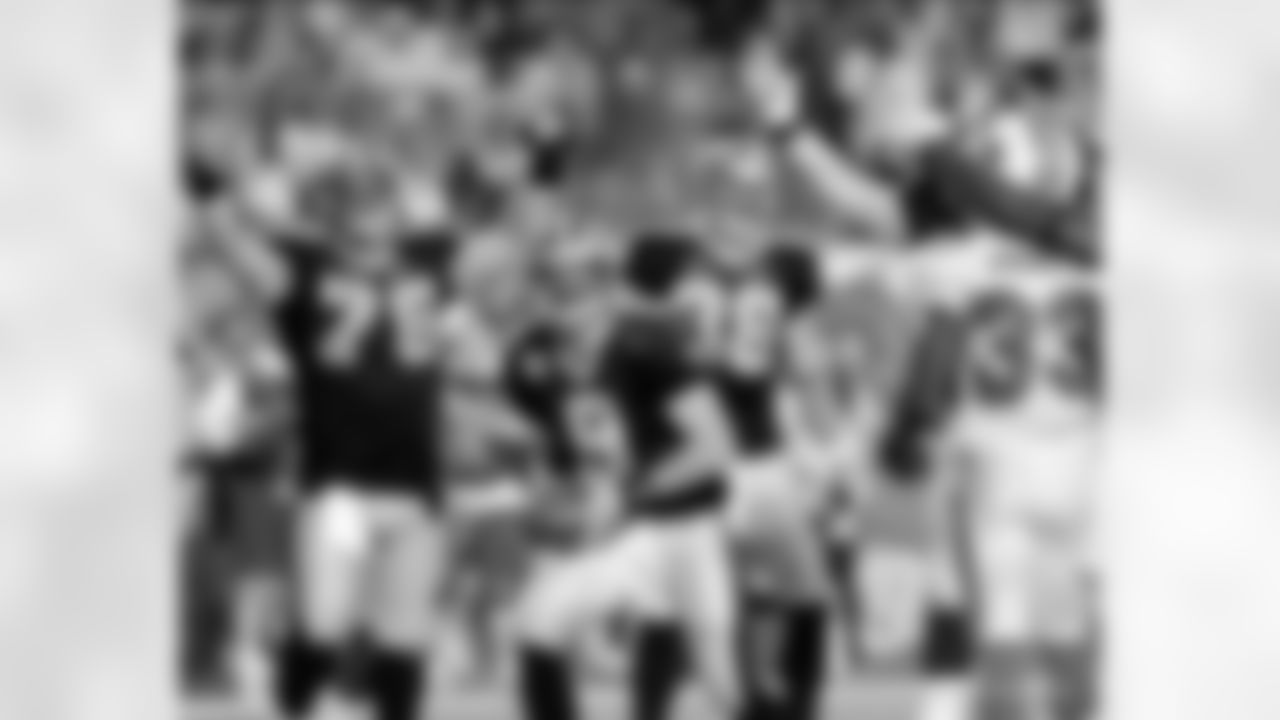
Following his NFL retirement announcement, we look back at Saints quarterback Drew Brees' career with 100 of the best photos from his time in New Orleans.

Following his NFL retirement announcement, we look back at Saints quarterback Drew Brees' career with 100 of the best photos from his time in New Orleans.

Following his NFL retirement announcement, we look back at Saints quarterback Drew Brees' career with 100 of the best photos from his time in New Orleans.

Following his NFL retirement announcement, we look back at Saints quarterback Drew Brees' career with 100 of the best photos from his time in New Orleans.

Following his NFL retirement announcement, we look back at Saints quarterback Drew Brees' career with 100 of the best photos from his time in New Orleans.

Following his NFL retirement announcement, we look back at Saints quarterback Drew Brees' career with 100 of the best photos from his time in New Orleans.
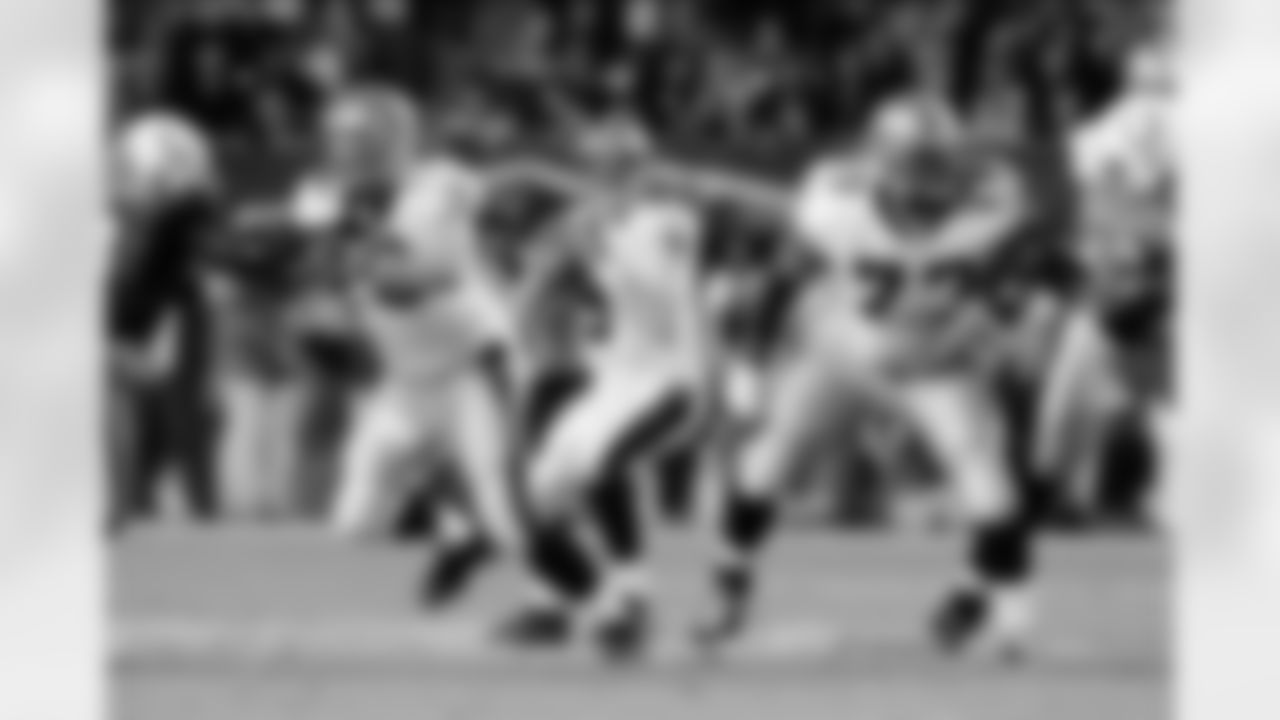
Following his NFL retirement announcement, we look back at Saints quarterback Drew Brees' career with 100 of the best photos from his time in New Orleans.

Following his NFL retirement announcement, we look back at Saints quarterback Drew Brees' career with 100 of the best photos from his time in New Orleans.

Following his NFL retirement announcement, we look back at Saints quarterback Drew Brees' career with 100 of the best photos from his time in New Orleans.

Following his NFL retirement announcement, we look back at Saints quarterback Drew Brees' career with 100 of the best photos from his time in New Orleans.

Following his NFL retirement announcement, we look back at Saints quarterback Drew Brees' career with 100 of the best photos from his time in New Orleans.

Following his NFL retirement announcement, we look back at Saints quarterback Drew Brees' career with 100 of the best photos from his time in New Orleans.

Following his NFL retirement announcement, we look back at Saints quarterback Drew Brees' career with 100 of the best photos from his time in New Orleans.

Following his NFL retirement announcement, we look back at Saints quarterback Drew Brees' career with 100 of the best photos from his time in New Orleans.

Following his NFL retirement announcement, we look back at Saints quarterback Drew Brees' career with 100 of the best photos from his time in New Orleans.

Following his NFL retirement announcement, we look back at Saints quarterback Drew Brees' career with 100 of the best photos from his time in New Orleans.

Following his NFL retirement announcement, we look back at Saints quarterback Drew Brees' career with 100 of the best photos from his time in New Orleans.

Following his NFL retirement announcement, we look back at Saints quarterback Drew Brees' career with 100 of the best photos from his time in New Orleans.

Following his NFL retirement announcement, we look back at Saints quarterback Drew Brees' career with 100 of the best photos from his time in New Orleans.

Following his NFL retirement announcement, we look back at Saints quarterback Drew Brees' career with 100 of the best photos from his time in New Orleans.

Following his NFL retirement announcement, we look back at Saints quarterback Drew Brees' career with 100 of the best photos from his time in New Orleans.

Following his NFL retirement announcement, we look back at Saints quarterback Drew Brees' career with 100 of the best photos from his time in New Orleans.

Following his NFL retirement announcement, we look back at Saints quarterback Drew Brees' career with 100 of the best photos from his time in New Orleans.

Following his NFL retirement announcement, we look back at Saints quarterback Drew Brees' career with 100 of the best photos from his time in New Orleans.

Following his NFL retirement announcement, we look back at Saints quarterback Drew Brees' career with 100 of the best photos from his time in New Orleans.

Following his NFL retirement announcement, we look back at Saints quarterback Drew Brees' career with 100 of the best photos from his time in New Orleans.

Following his NFL retirement announcement, we look back at Saints quarterback Drew Brees' career with 100 of the best photos from his time in New Orleans.

Following his NFL retirement announcement, we look back at Saints quarterback Drew Brees' career with 100 of the best photos from his time in New Orleans.
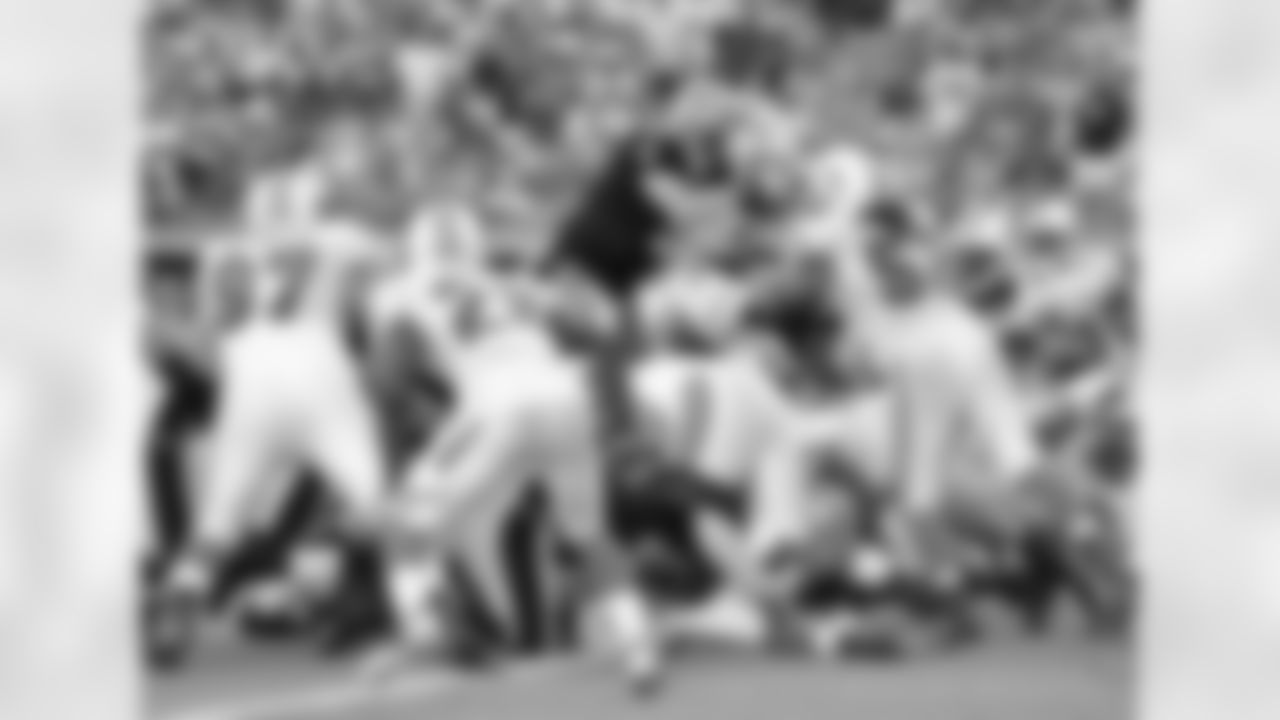
Following his NFL retirement announcement, we look back at Saints quarterback Drew Brees' career with 100 of the best photos from his time in New Orleans.

Following his NFL retirement announcement, we look back at Saints quarterback Drew Brees' career with 100 of the best photos from his time in New Orleans.

Following his NFL retirement announcement, we look back at Saints quarterback Drew Brees' career with 100 of the best photos from his time in New Orleans.

Following his NFL retirement announcement, we look back at Saints quarterback Drew Brees' career with 100 of the best photos from his time in New Orleans.

Following his NFL retirement announcement, we look back at Saints quarterback Drew Brees' career with 100 of the best photos from his time in New Orleans.

Following his NFL retirement announcement, we look back at Saints quarterback Drew Brees' career with 100 of the best photos from his time in New Orleans.

Following his NFL retirement announcement, we look back at Saints quarterback Drew Brees' career with 100 of the best photos from his time in New Orleans.

Following his NFL retirement announcement, we look back at Saints quarterback Drew Brees' career with 100 of the best photos from his time in New Orleans.

Following his NFL retirement announcement, we look back at Saints quarterback Drew Brees' career with 100 of the best photos from his time in New Orleans.

Following his NFL retirement announcement, we look back at Saints quarterback Drew Brees' career with 100 of the best photos from his time in New Orleans.

Following his NFL retirement announcement, we look back at Saints quarterback Drew Brees' career with 100 of the best photos from his time in New Orleans.

Following his NFL retirement announcement, we look back at Saints quarterback Drew Brees' career with 100 of the best photos from his time in New Orleans.

Following his NFL retirement announcement, we look back at Saints quarterback Drew Brees' career with 100 of the best photos from his time in New Orleans.

Following his NFL retirement announcement, we look back at Saints quarterback Drew Brees' career with 100 of the best photos from his time in New Orleans.

Following his NFL retirement announcement, we look back at Saints quarterback Drew Brees' career with 100 of the best photos from his time in New Orleans.
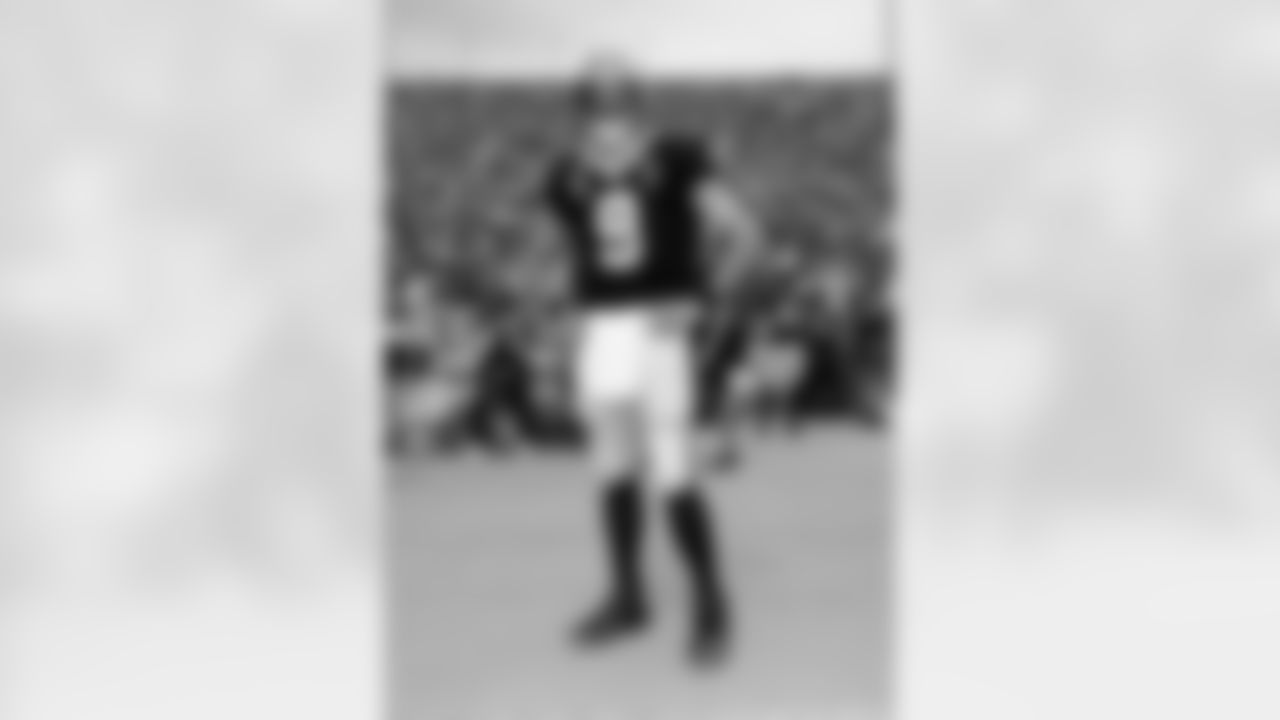
Following his NFL retirement announcement, we look back at Saints quarterback Drew Brees' career with 100 of the best photos from his time in New Orleans.

Following his NFL retirement announcement, we look back at Saints quarterback Drew Brees' career with 100 of the best photos from his time in New Orleans.

Following his NFL retirement announcement, we look back at Saints quarterback Drew Brees' career with 100 of the best photos from his time in New Orleans.

Following his NFL retirement announcement, we look back at Saints quarterback Drew Brees' career with 100 of the best photos from his time in New Orleans.

Following his NFL retirement announcement, we look back at Saints quarterback Drew Brees' career with 100 of the best photos from his time in New Orleans.

Following his NFL retirement announcement, we look back at Saints quarterback Drew Brees' career with 100 of the best photos from his time in New Orleans.

Following his NFL retirement announcement, we look back at Saints quarterback Drew Brees' career with 100 of the best photos from his time in New Orleans.

Following his NFL retirement announcement, we look back at Saints quarterback Drew Brees' career with 100 of the best photos from his time in New Orleans.

Following his NFL retirement announcement, we look back at Saints quarterback Drew Brees' career with 100 of the best photos from his time in New Orleans.

Following his NFL retirement announcement, we look back at Saints quarterback Drew Brees' career with 100 of the best photos from his time in New Orleans.

Following his NFL retirement announcement, we look back at Saints quarterback Drew Brees' career with 100 of the best photos from his time in New Orleans.

Following his NFL retirement announcement, we look back at Saints quarterback Drew Brees' career with 100 of the best photos from his time in New Orleans.

Following his NFL retirement announcement, we look back at Saints quarterback Drew Brees' career with 100 of the best photos from his time in New Orleans.

Following his NFL retirement announcement, we look back at Saints quarterback Drew Brees' career with 100 of the best photos from his time in New Orleans.

Following his NFL retirement announcement, we look back at Saints quarterback Drew Brees' career with 100 of the best photos from his time in New Orleans.

Following his NFL retirement announcement, we look back at Saints quarterback Drew Brees' career with 100 of the best photos from his time in New Orleans.
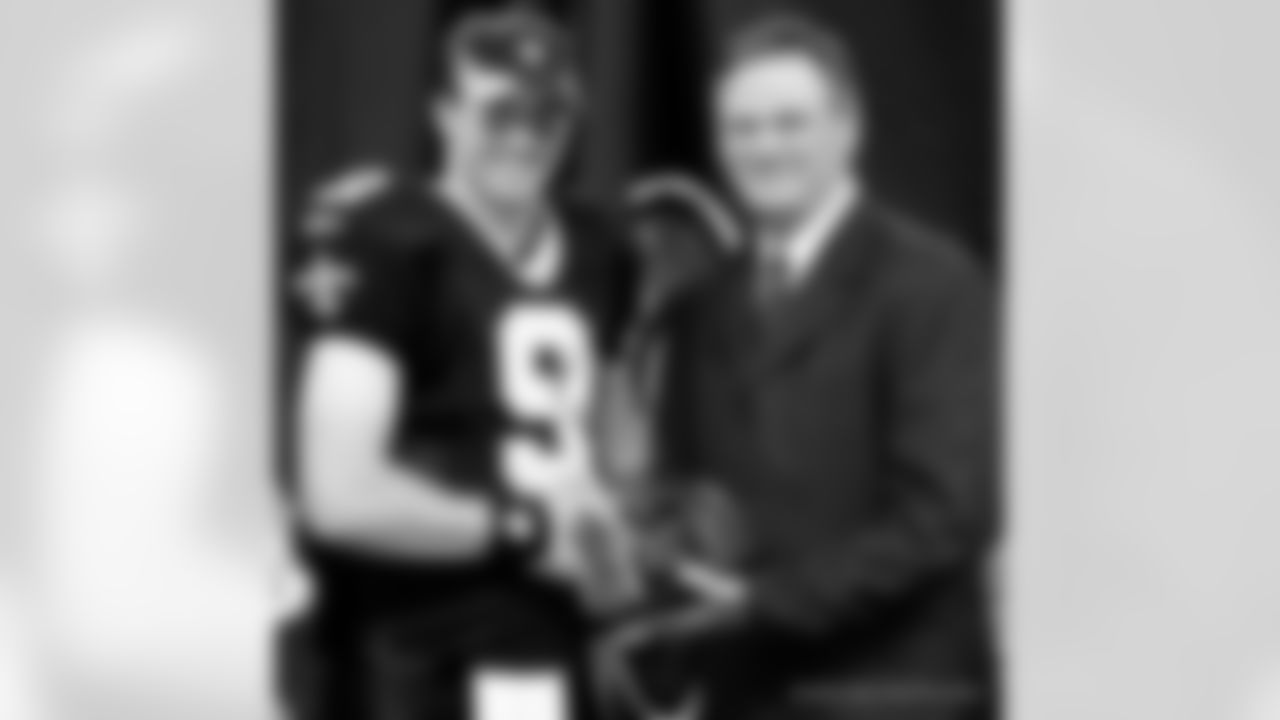
Following his NFL retirement announcement, we look back at Saints quarterback Drew Brees' career with 100 of the best photos from his time in New Orleans.

Following his NFL retirement announcement, we look back at Saints quarterback Drew Brees' career with 100 of the best photos from his time in New Orleans.

Following his NFL retirement announcement, we look back at Saints quarterback Drew Brees' career with 100 of the best photos from his time in New Orleans.
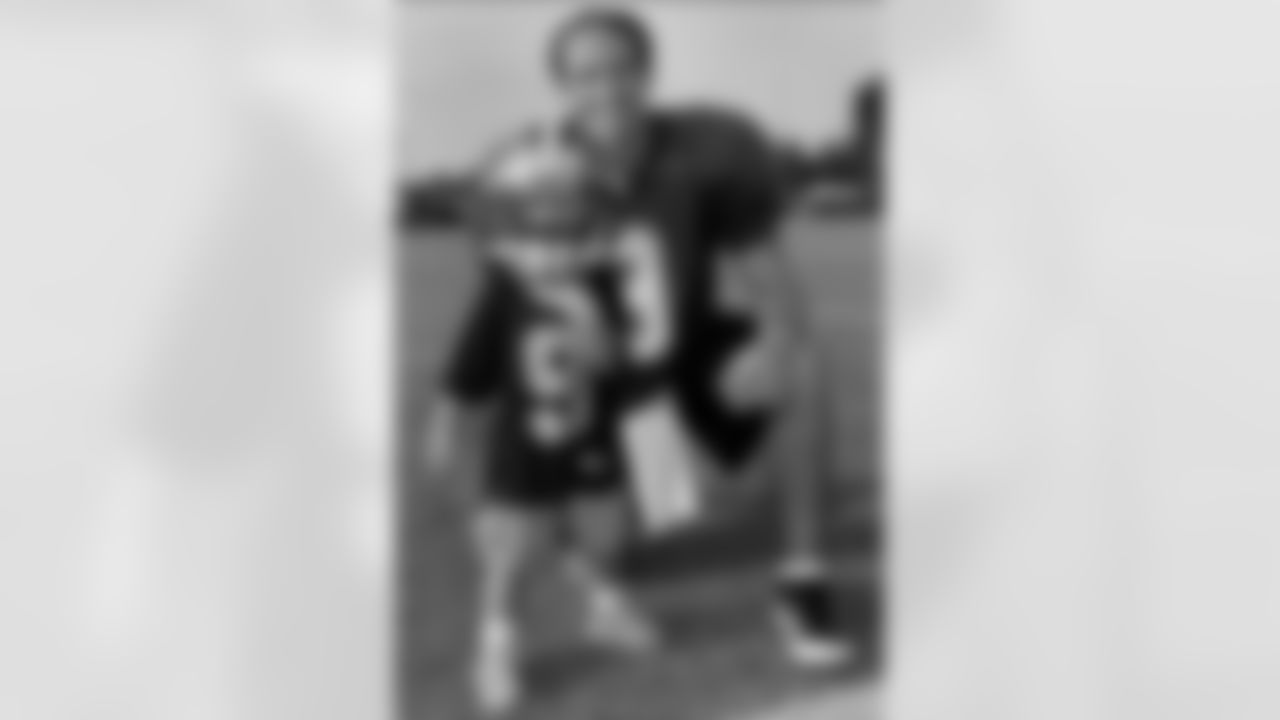
Following his NFL retirement announcement, we look back at Saints quarterback Drew Brees' career with 100 of the best photos from his time in New Orleans.

Following his NFL retirement announcement, we look back at Saints quarterback Drew Brees' career with 100 of the best photos from his time in New Orleans.

Following his NFL retirement announcement, we look back at Saints quarterback Drew Brees' career with 100 of the best photos from his time in New Orleans.

Following his NFL retirement announcement, we look back at Saints quarterback Drew Brees' career with 100 of the best photos from his time in New Orleans.

Following his NFL retirement announcement, we look back at Saints quarterback Drew Brees' career with 100 of the best photos from his time in New Orleans.

Following his NFL retirement announcement, we look back at Saints quarterback Drew Brees' career with 100 of the best photos from his time in New Orleans.

Following his NFL retirement announcement, we look back at Saints quarterback Drew Brees' career with 100 of the best photos from his time in New Orleans.
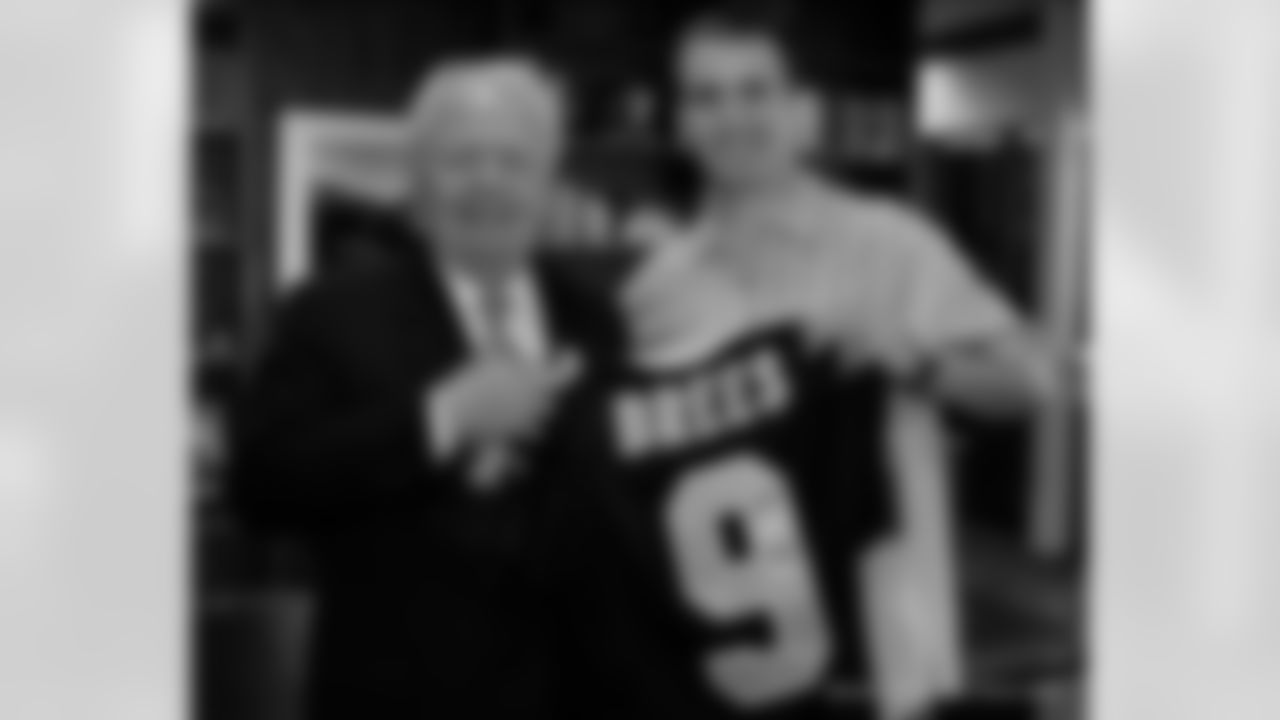
Following his NFL retirement announcement, we look back at Saints quarterback Drew Brees' career with 100 of the best photos from his time in New Orleans.

Following his NFL retirement announcement, we look back at Saints quarterback Drew Brees' career with 100 of the best photos from his time in New Orleans.

Following his NFL retirement announcement, we look back at Saints quarterback Drew Brees' career with 100 of the best photos from his time in New Orleans.

Following his NFL retirement announcement, we look back at Saints quarterback Drew Brees' career with 100 of the best photos from his time in New Orleans.

Following his NFL retirement announcement, we look back at Saints quarterback Drew Brees' career with 100 of the best photos from his time in New Orleans.

Following his NFL retirement announcement, we look back at Saints quarterback Drew Brees' career with 100 of the best photos from his time in New Orleans.

Following his NFL retirement announcement, we look back at Saints quarterback Drew Brees' career with 100 of the best photos from his time in New Orleans.

Following his NFL retirement announcement, we look back at Saints quarterback Drew Brees' career with 100 of the best photos from his time in New Orleans.

Following his NFL retirement announcement, we look back at Saints quarterback Drew Brees' career with 100 of the best photos from his time in New Orleans.
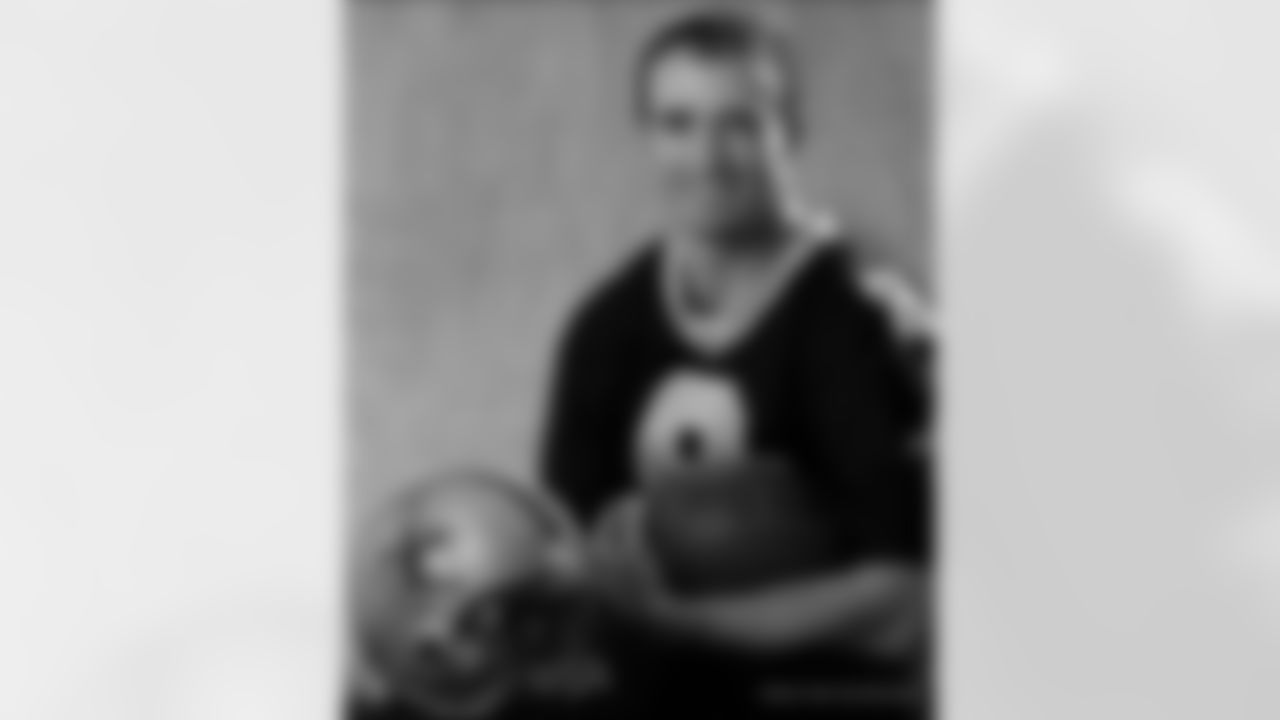
Following his NFL retirement announcement, we look back at Saints quarterback Drew Brees' career with 100 of the best photos from his time in New Orleans.

Following his NFL retirement announcement, we look back at Saints quarterback Drew Brees' career with 100 of the best photos from his time in New Orleans.

Following his NFL retirement announcement, we look back at Saints quarterback Drew Brees' career with 100 of the best photos from his time in New Orleans.

Following his NFL retirement announcement, we look back at Saints quarterback Drew Brees' career with 100 of the best photos from his time in New Orleans.

Following his NFL retirement announcement, we look back at Saints quarterback Drew Brees' career with 100 of the best photos from his time in New Orleans.

Following his NFL retirement announcement, we look back at Saints quarterback Drew Brees' career with 100 of the best photos from his time in New Orleans.

Following his NFL retirement announcement, we look back at Saints quarterback Drew Brees' career with 100 of the best photos from his time in New Orleans.

Following his NFL retirement announcement, we look back at Saints quarterback Drew Brees' career with 100 of the best photos from his time in New Orleans.

Following his NFL retirement announcement, we look back at Saints quarterback Drew Brees' career with 100 of the best photos from his time in New Orleans.

Following his NFL retirement announcement, we look back at Saints quarterback Drew Brees' career with 100 of the best photos from his time in New Orleans.

Following his NFL retirement announcement, we look back at Saints quarterback Drew Brees' career with 100 of the best photos from his time in New Orleans.

Following his NFL retirement announcement, we look back at Saints quarterback Drew Brees' career with 100 of the best photos from his time in New Orleans.

Following his NFL retirement announcement, we look back at Saints quarterback Drew Brees' career with 100 of the best photos from his time in New Orleans.
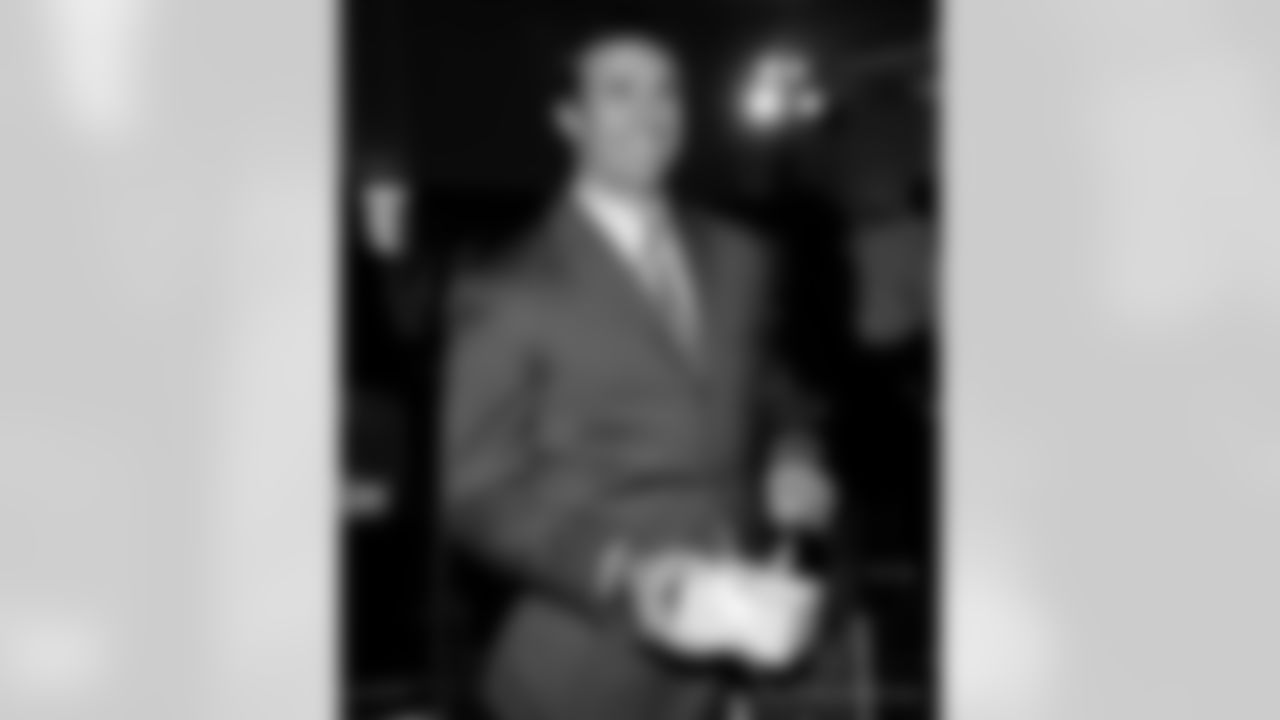
Following his NFL retirement announcement, we look back at Saints quarterback Drew Brees' career with 100 of the best photos from his time in New Orleans.

Following his NFL retirement announcement, we look back at Saints quarterback Drew Brees' career with 100 of the best photos from his time in New Orleans.

Following his NFL retirement announcement, we look back at Saints quarterback Drew Brees' career with 100 of the best photos from his time in New Orleans.

Following his NFL retirement announcement, we look back at Saints quarterback Drew Brees' career with 100 of the best photos from his time in New Orleans.

Following his NFL retirement announcement, we look back at Saints quarterback Drew Brees' career with 100 of the best photos from his time in New Orleans.

Following his NFL retirement announcement, we look back at Saints quarterback Drew Brees' career with 100 of the best photos from his time in New Orleans.

Following his NFL retirement announcement, we look back at Saints quarterback Drew Brees' career with 100 of the best photos from his time in New Orleans.
"It's everything. I'm looking at me playing 10 years. There's no way on earth that I would be able to double up my career, just mentally. But I think the ability to always strive to compete at the highest level, always find ways to get better – I always talk about the climb to the top of the mountain takes a certain level of focus, but to stay at the top of the mountain takes a completely different type of focus.
"And for him to be able to do that, and have the mental fortitude to do that for two decades, there's a reason why you have not seen that. It's so rare to be able to stay that locked in for that long, and continue to try to get better along the way, when you own every record in the book."
That rarity, and the production manifested through it, helped make New Orleans an attractive destination. Linebacker Demario Davis (2018-present) said he was drawn to the franchise as a free agent because of the chance to have a franchise quarterback leading the team into the playoffs, and linebacker Jonathan Vilma (2008-13) said when the New York Jets were considering trading him, he had his eye on the Saints because he saw the potential.
"I knew that we would get to the playoffs, and it was because we had a quarterback," Vilma said. "I remember when I was getting traded, I just asked that I go somewhere that has a quarterback.
"At that time, it had come down to Detroit and New Orleans, and I was like, 'God, no, not Detroit. Please, New Orleans. Drew Brees is there. I remember him from the Chargers. I know he's good and I know we can get to the playoffs.' So when I got traded back in '08, I immediately assumed we could make the playoffs. I actually didn't make the playoffs, missed it my first year. And then we regrouped that offseason, had really, really good training camp and then we won the Super Bowl the next year."
New Orleans Saints photos of Drew Brees in Super Bowl XLIV. Photos by Michael C. Hebert.




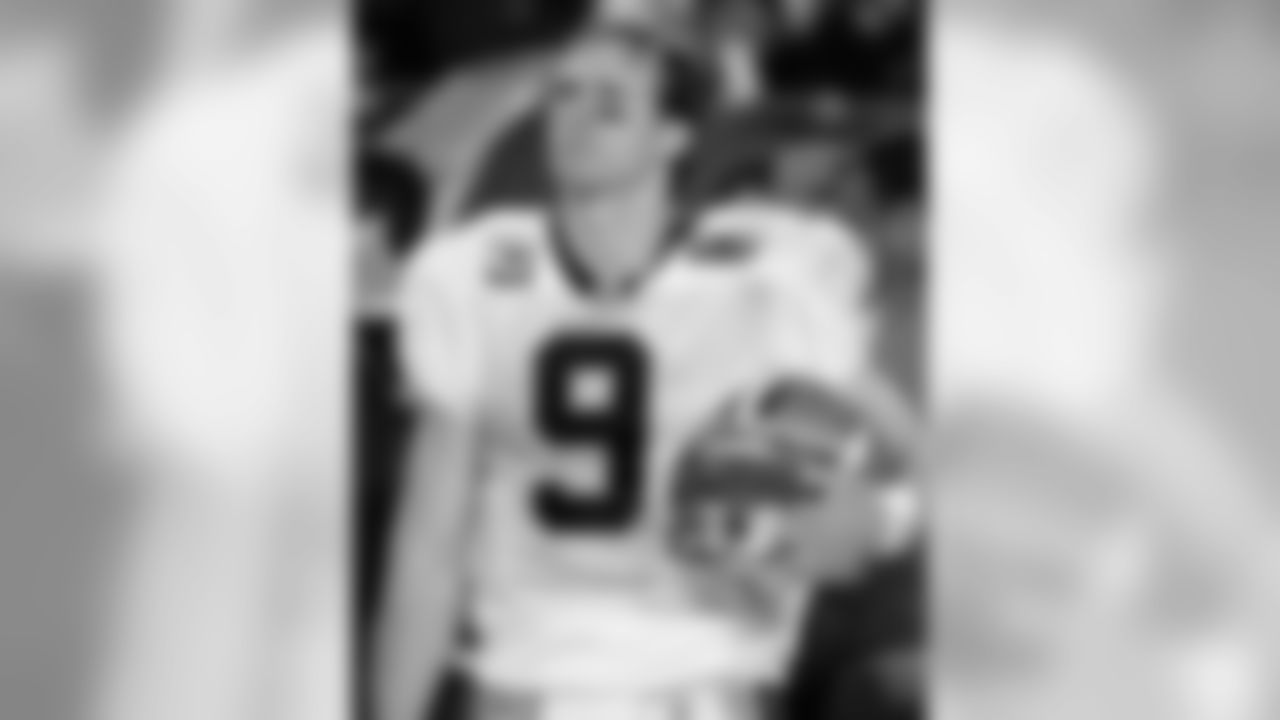
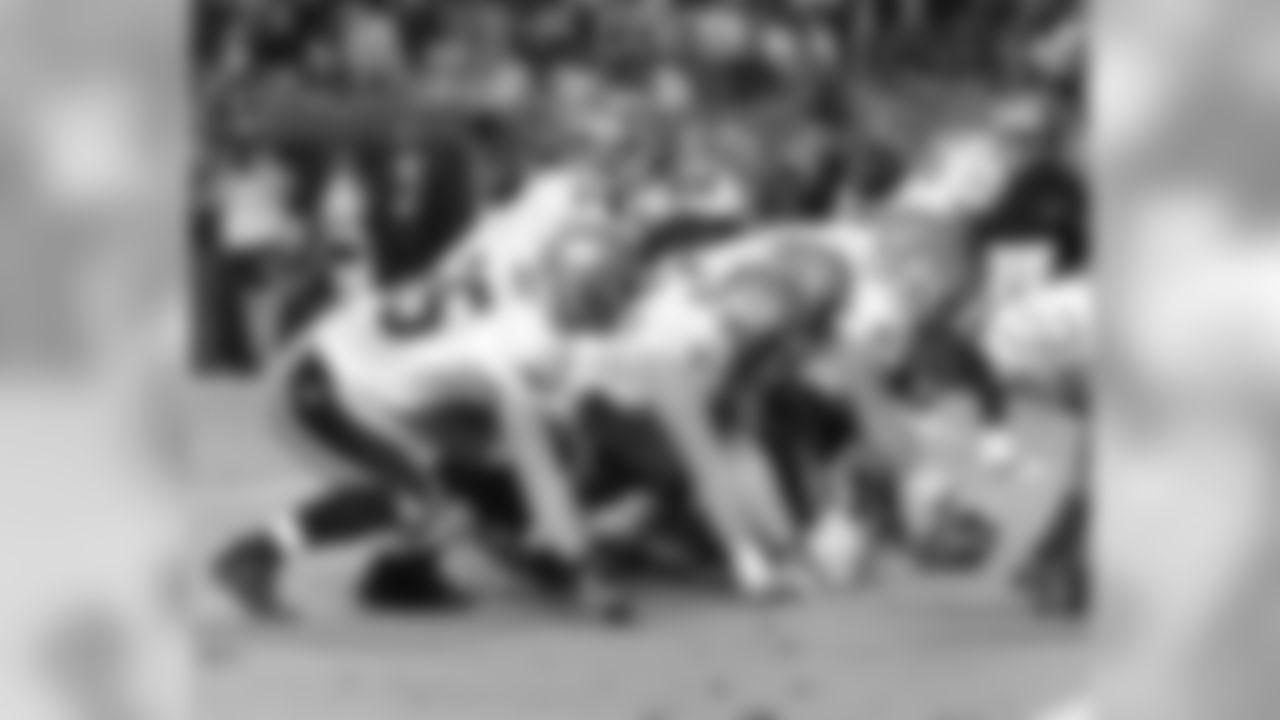




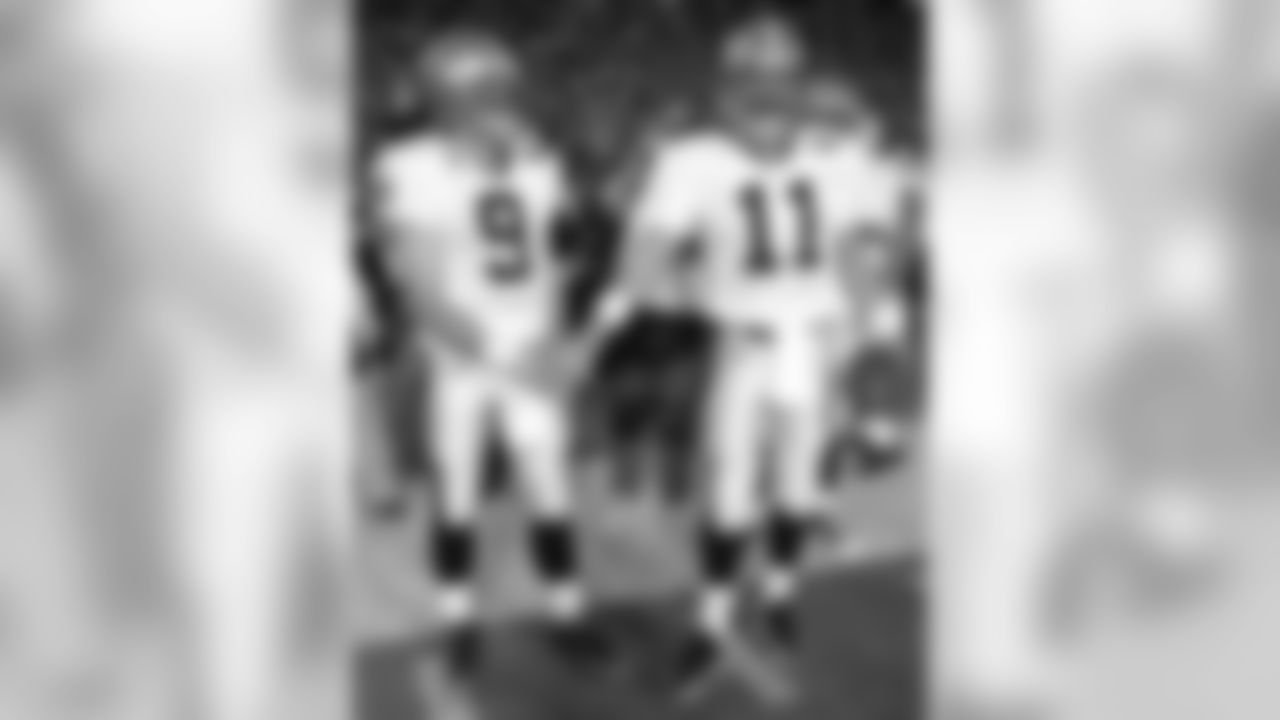
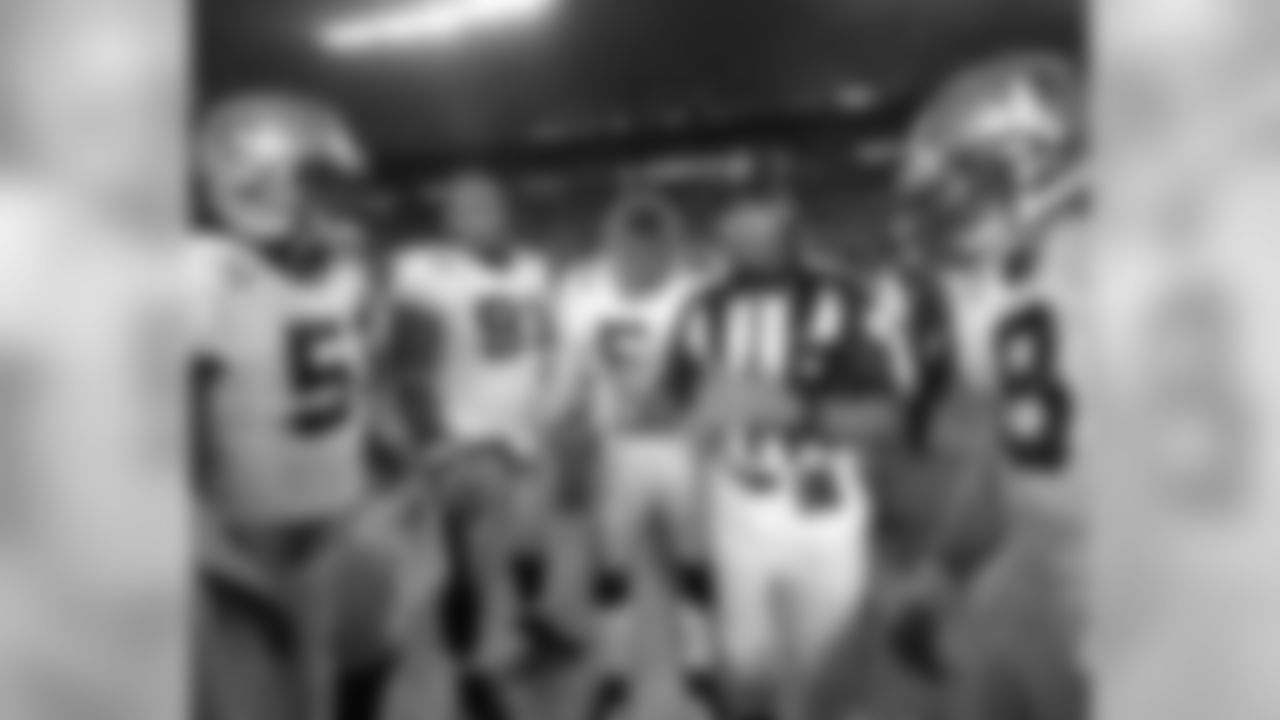


The Saints' Super Bowl run was fueled by the competition between Brees and Vilma, who daily sought to best each other in practice.
"One thousand percent," Vilma said, when asked if Brees made him better. "I remember when we actually were on different teams, he was with the San Diego Chargers, I was with the New York Jets, and we played a couple of times that year. I remember how good he was then and how we had to prepare for him. It's different when you kind of play against a player and you recognize how good they are, you respect their ability from a competitive standpoint.
"And then, now you're on the same team with them and you can really appreciate the time, the effort, the consistency that he would put in as a player. That's really what I learned, was to understand how to really dive into the process during the week of knowing your opponent inside and out, of becoming a better player because of that. Watching him do it – he's a great leader by example – and watching him do it for so long, it definitely made me a better player."
Initially, Brees wasn't even the face of the Saints franchise, let alone its unquestioned leader. Electrifying running back Reggie Bush was New Orleans' first-round pick in 2006, the No. 2 overall choice, and the appeal of the 2005 Heisman Trophy winner was a shot of adrenaline for a franchise that was coming back to New Orleans in 2006 following a nomadic 2005, an uprooting caused by Hurricane Katrina.
Few totally knew about the unrestricted free agent quarterback from the Chargers who, at the time, was recovering from a serious shoulder injury. Likely, no one in New Orleans knew more than Pete Carmichael, the Saints' offensive coordinator since 2009 and the quarterbacks coach in '06. Brees was a Charger from 2001-05; Carmichael was an offensive assistant and quality control coach for the Chargers in '02-'03, and an assistant receivers and quality control coach in '04-'05.
"His mental approach to the game, his locker room presence, his makeup, being such a great teammate – all the things that you don't see on the field, you just knew were outstanding, exceptional," Carmichael said. "A guy that you would love to have in the building leading your team, and then that goes along with all his football talent that he had – his accuracy, his ability to get in and out of the huddle and move the team down the field. There were just so many things about him as a player that you loved, and so many things that you look for that maybe you can't necessarily see on film as well."
What the Saints didn't initially see, in person, was the throwing prowess.

With Brees recovering from shoulder surgery – a torn labrum in his throwing shoulder – and participating in training camp in Jackson, Miss., the anticipation was measurable.
Is that what it looks like, Pete? How'd he look to you, Pete? Does that look like he's back to being himself, Pete?
"I remember there being a moment – (Saints Coach) Sean (Payton) even talks about that – where he was getting through the preseason, and then him telling Sean, 'It's going to be great, I made a throw today that I just felt good about. It's getting close, it's almost there,' " Carmichael said. "I think the early part of the training camp was just him working himself back into the routine, coming back from such a traumatic injury. But as training camp went on and we got close to the season, you could see that he was getting back to that level."
It was a level achieved despite not having the physical characteristics of a quarterback from central casting.
Brees wasn't especially big (6 feet, 209 pounds) or fast, wasn't a buy-time scrambler or rocket-armed thrower. What he was, was an elite grinder who maximized the gifts that he did possess for longer, and more effectively, than most would have dared to dream.
"On the surface, it looks like something that may hinder you," Colston said. "But I think for him, he was able to really play the game using a completely different set of tools that didn't stress him physically as much.
"And I think him being able to figure out the more mental side of the game, and being able to use the arm angles, the anticipation, all of those things, there's no attrition on those things. Whereas if you're somebody that depends on your leg strength or depends on your arm strength, there's an attrition that comes along with playing football. You're going to get beat up, you're going to get hit, you're going to get injured, that's just part of it.
"But his edge has always been so cognitive and so mentally focused that there's not as much attrition there and I think that's part of the reason that, even being slight of stature as most people would call him, he's been able to do it at the highest level for 20 years."
Meticulous nearly to the point of maniacal.
I think (the consistency) is the brilliance. Like, to be able to do that for 20 years. There is no grand moment. There’s literally a commitment to millions of small, intentional moments, that create that kind of a career. - Marques Colston
"The one characteristic would be, in a good way, he is extremely, extremely, OCD (obsessive-compulsive disorder)," Vilma said. "And when I say that's in a good way, it's because during the week it's about the process and the preparation during the week. He absolutely needs, wants, everything done a certain way, at a certain time.
"If it was walk-through, a walk-through had to be run a certain way. He had to go through his progressions a very specific way, or else they couldn't finish the walkthrough. That's just what it was. Same thing with practice – had to have practice a certain way, at a certain speed, he needed the scout team to go at a feverish pace to simulate the game as much as possible.
"Very, very detailed in that regard to the point of being OCD about the preparation, the look, the feel of how we were going through our walkthrough on a Saturday. It was every little detail. I talk about him being OCD – it had to be the same way for literally 17 weeks straight. And that's why he is so good."
And Brees has been unselfish, willing to share his trade secrets, and try those of others.
"Oh, yeah," Morstead said. "Over time you just ask questions. 'Hey, have you experienced this?' or, 'Have you had to deal with this?' And if so, 'How did you overcome that?' or 'What are some of the things that you've find to continue to improve?' Whether it's your sleep or your nutrition, recovery, all those different things.
"Not everything that works for him works for me, and vice versa. But I think really it's more about that mentality of always trying to find the next thing that's going to give you an edge, or an advantage, and constantly being open to the change. I think the mentality of having kind of a beginner's mentality – like, you don't ever have it made, you don't ever have it figured out.
"I've watched him do that for my entire time here, and I think it's a great thing when arguably the most important position on the team happens to be a guy that's the first in and the last to leave, sets a great example with all the different ways you can prepare. He's done that."
For 20 NFL seasons, he did that.
Through torn labrum, torn plantar fascia, torn thumb ligament, broken ribs, collapsed lung – and probably a plethora of injuries that never were revealed – he did that, all the way up to the age of 42.
"Yeah, that's crazy, because I'm gonna be completely honest with you, I ain't got 16 more (seasons) in me (to get to 42)," said defensive tackle Sheldon Rankins, a Saint since 2016. "Not at all. Not even a little bit. Oh my God, that's crazy.
"Yeah, that's mind blowing, not only obviously to play that long, but the level of play which he has sustained over the course of that time, battling injuries or whatever he's had to deal with over the course of his career. The level of excellence he's sustained for that long and continues to sustain is by far one of the most incredible things, not only that I've seen, but that this league has seen. Period."















